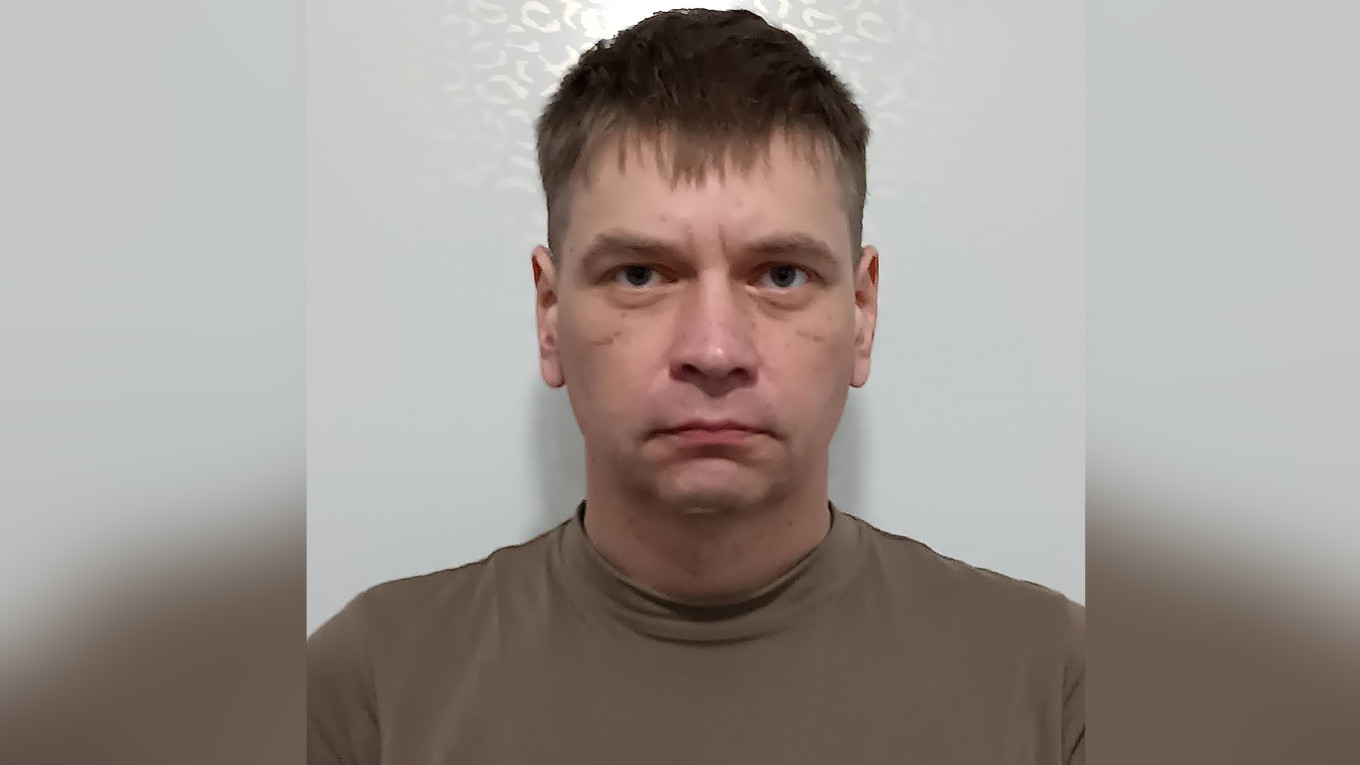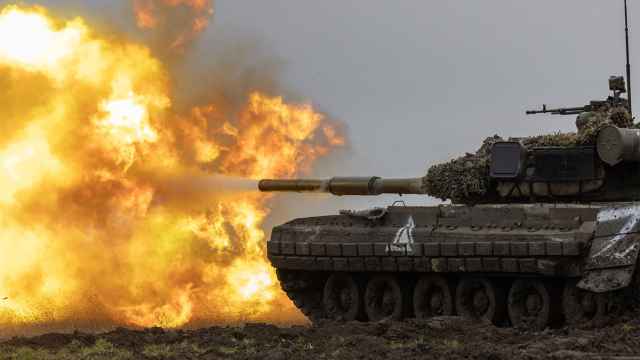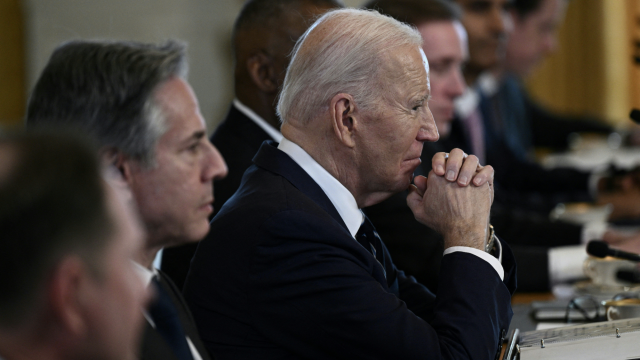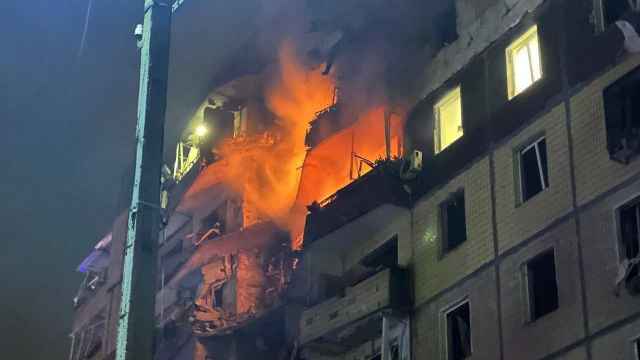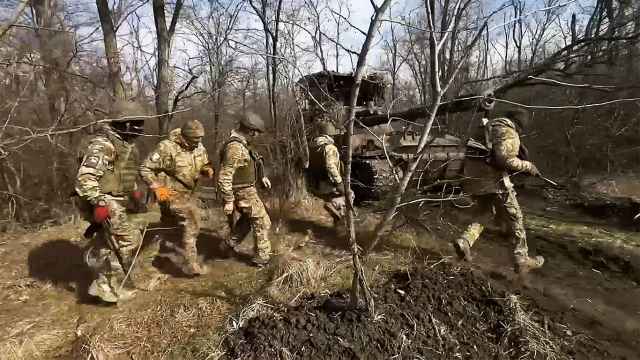In November 2023, Alexei Zhilyaev made a fateful decision. Opposed to Russia’s invasion of Ukraine, the 39-year-old IT specialist from a St. Petersburg suburb enlisted as a medic in the Russian army, believing he could save lives on the battlefield.
Less than a year later, disillusioned and haunted by the futility of his work, Zhilyaev deserted from the ranks. He now lives in France, where he is waiting for political asylum.
His story sheds light on the horrors faced by both soldiers and civilians in Moscow’s nearly three-year war — and the brutality of the Russian military.
The Moscow Times could not independently verify the details of Zhilyaev’s account. But Idite Lesom (Get Lost), a Russian project that helps men avoid combat, confirmed that he served as a combat medic in eastern Ukraine and deserted with the group’s help.
“I’ve always been against this regime. I protested with Navalny’s supporters,” Zhilyaev told The Moscow Times. “When the war started, my wife and I argued: She was repeating the propaganda trope, ‘They’ve been bombing Donbas for eight years,’ but I was against it.”
On Nov. 20, 2023, while meeting a friend at St. Petersburg’s Moskovsky train station, Zhilyaev saw waves of soldiers, maimed and broken, being transported to sanatoriums. Trained as a medic in his youth, he felt compelled to act.
Within hours, he signed a contract and was sent to a training camp in Pogonovo near Voronezh. Days later, he was deployed to the front line near Svatove and Kreminna in Ukraine’s Luhansk region.
In occupied eastern Ukraine, Zhilyaev witnessed destruction on a scale he’d never imagined. “Everything was obliterated. People who stayed worked in markets, garages and brothels. There was nothing left — no industry, no jobs,” he said.
Despite being stationed at the “zero line” — trenches behind those directly engaging in combat — he was tasked with evacuating the wounded and dead from the battlefield every day.
“On my first mission, five wounded soldiers approached us during a mortar barrage. I screamed, ‘Get in the BMP [armored vehicle] now!’ One of them had an open fracture but still managed to run. Adrenaline is a strange thing — I pulled a man into the vehicle with one hand, despite me not being buff or really strong,” he said.
While no injured soldiers died in Zhilyaev’s care, he said their suffering was immense.
“Even the ‘good’ stories are horrific,” he said. “Survivors often lose limbs. ‘Traumatic amputations’ are a daily reality.”
He said he was shocked by the Russian military’s reliance on “meat assaults” — sending waves of poorly equipped soldiers to storm fortified positions.
“Ukrainian forces value their soldiers. If Russian troops advance, Ukrainians retreat to the prepared positions with all eyes and guns on the seemingly lost position and bombard the attackers,” he said. “A 15-man assault group might see only three return alive. On average, we evacuated about seven Russian bodies and one or two Ukrainian ones.”
In contrast, Ukraine sends swarms of drones rather than men.
“There are swarms of Ukrainian drones, sometimes five per Russian soldier on the front line. I remember an 18-year-old who’d just arrived. He’d been at the front line for 20 minutes. An FPV drone with a TNT charge hit him — he was finished. Drones haunt every mission of ours too,” he said.
Russian forces, meanwhile, often use drones in a different, more limited way on the battlefield.
“Commanders often used high-tech Orlan drones just to watch assaults unfold, on several screens like a video game,” Zhilyaev said. “A drone operator told me he was just sitting and watching waves of people die without intervening.”
Participation in these “meat assaults” was more of a punishment than a standard duty. The men that made up these storm brigades ranged from men being punished for not shaving to the penal ones, where the commanders would send the “undesirables,” like conscientious objectors or gepatitchicki — people infected with hepatitis C.
Punishments were brutal and arbitrary. Getting sent to the "pit," a makeshift detention area, was the most extreme form of punishment.
“In Mozhnyakovka, a lieutenant was thrown into the ‘pit’ and left to lose both feet to frostbite because the officer disliked him,” Zhilyaev said. “We barely got him out by attracting the volunteers’ attention.”
Another soldier was sent on a suicide mission after political officers — responsible for investigating incidents like self-inflicted wounds to avoid fighting and refusals to follow orders — forced him to sign a document saying he had intentionally wounded himself and would “redeem his sin by blood in battle,” Zhilyaev said.
“Twenty prisoners in the ‘pit’ would receive a couple of loaves of bread and 1.5 liters of water for the whole day, during which they would be forced to do hard physical labor, abused both physically and psychologically. Some were forced into assault units — essentially death squads with a near-zero survival rate,” Zhilyaev said.
“While the Constitution claims the occupied territories are Russian, no one is protected by any law here. Commanders can do as they please,” Zhilyaev said, with Ukrainian POWs and civilians particularly vulnerable.
“Once, a young Ukrainian soldier from a recon group was captured by the 283rd platoon, his comrades KIA. They brought him to the ‘zero line’ with a gunshot wound in his leg. After we administered aid, the FSB immediately took him away,” Zhilyaev recalled. “Another time, in May, I treated a Ukrainian POW whose feet were shot by a drunken Russian ex-convict. His name is Volodymyr. We had a chance to talk during treatment — a fine guy. He only survived because other soldiers intervened, and even then he was guarded in the field hospital.”
But the most haunting incident, he said, involved a civilian woman in July 2024.
“We were stationed at the division command post in Zhitlovka. At one point, a duty officer suddenly called us to a checkpoint. There was a dirt road between the command post and the forest — the locals who were still there would regularly go down it on bikes and the like. There was a girl lying on the ground with her four-wheeler. She’d been shot so many times … there was no chance of saving her.”
Zhilyaev was even more shaken by the killer’s reaction.
“We ran to the watchman who did it to beat him, but the command was already there. He shot half a magazine and had the audacity to say that he shot twice — as a warning and to kill. Then, when my surgeon colleague Matvey asked him ‘Why?!,’ the shooter shrugged and said, ‘And what about her?’ That’s what he said after killing a human being. His superior … never punished him.”
After months of witnessing bloodshed, death and suffering, Zhilyaev became increasingly certain that his efforts to help people were futile.
“The people we were supposed to ‘liberate,’ according to Putin, hated us, and made it apparent just by the looks we’d get in a store. I knew I was a part of the occupying force — every soldier there did. It’s the civilians back home who still don’t get it,” Zhilyaev said.
“I would remember some of the surnames of the soldiers I evacuated. Once, I recognized a name on a casualty report. I’d treated that man weeks earlier. And then this happened again and again,” he said. “That’s when I realized how meaningless my work was from the medical perspective. The life cycle of a Russian soldier inevitably ends in an assault where one has to kill or be killed. And I want to do neither.”
Zhilyaev was wounded in February 2024 when a mortar shell hit his armored vehicle during a body recovery mission. Despite his injuries and the risk of infection from the dead bodies, he managed to perform first aid on himself and get evacuated to a hospital. The experience deepened his resolve to escape.
“If not for the fact that military hospitals are like jails guarded by the military police, I would probably have tried to escape back then,” he said.
In August 2024, using a leave pass granted by his commander, he traveled back to Russia. After a short stay at home in St. Petersburg, he flew to Belarus, where he contacted Idite Lesom. The group helped him make his way to France, where he requested asylum upon arrival. If he returns to Russia, he faces up to 15 years in prison.
Today, he is grappling with new anxieties resulting from PTSD.
“The first evacuation wasn’t scary as I didn’t know what I had signed up for. The second one was. Then, you stop feeling anything. The fear comes back now — from realizing how easily I could have died,” Zhilyaev said.
“I’ve worked with a psychologist, and I’m slowly recovering. I’m also helped by a friend from the Ukrainian army I made here — he became a veteran after being injured. He tells me the trauma will ease its grip in a year or so,” said Zhilyaev.
Despite everything, Zhilyaev said he remains proud of his actions as a medic.
“I love [French singer] Édith Piaf,” he said. “There is a song of hers — ‘Non, je ne regrette rien’ — I don’t regret anything. I saved lives, a lot of them. And I think that’s worth something.”
Zhilyaev, like the six Russian deserters from the Proshchai, Oruzhiye (Farewell to Arms) group who arrived in France to seek asylum in October, believes his story could change minds back home.
“I hope that my story can help people back home realize there is nothing right with this war. And I’m not afraid to talk — all fear I would ever have I left there, in the war,” he said.
A Message from The Moscow Times:
Dear readers,
We are facing unprecedented challenges. Russia's Prosecutor General's Office has designated The Moscow Times as an "undesirable" organization, criminalizing our work and putting our staff at risk of prosecution. This follows our earlier unjust labeling as a "foreign agent."
These actions are direct attempts to silence independent journalism in Russia. The authorities claim our work "discredits the decisions of the Russian leadership." We see things differently: we strive to provide accurate, unbiased reporting on Russia.
We, the journalists of The Moscow Times, refuse to be silenced. But to continue our work, we need your help.
Your support, no matter how small, makes a world of difference. If you can, please support us monthly starting from just $2. It's quick to set up, and every contribution makes a significant impact.
By supporting The Moscow Times, you're defending open, independent journalism in the face of repression. Thank you for standing with us.
Remind me later.


